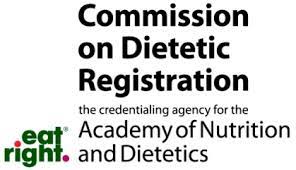
Psychosocial Considerations in Post-Hematopoietic Stem Cell Transplantation
Activity description
This activity consists of a recorded presentation from the "Essentials of Oncology, Solid Organ and Blood/Marrow Transplant Management for the Health Care Team" conference held in Scottsdale, Ariz., March 14–15, 2022.
Anxiety, depression, sleep disruption and psychosocial difficulties are common and often expected psychological disorders experienced along the continuum of hematopoietic stem cell transplant (HSCT) therapy, particularly in the posttransplant period. Factors contributing to these issues post-HSCT include disease-associated low quality of life, longer treatment phases and hospitalizations, immunosuppression-related lifestyle changes to minimize infection, and treatment- and prognosis-related feelings of anxiety and powerlessness. This session will discuss the current approach for screening and management of these complications and will review data regarding the negative associations among psychological distress, health outcomes, successful HSCT, and increased mortality. Barriers in the delivery of psychosocial care and care models to address these issues will also be outlined.
Provided by
This activity is provided by OptumHealth Education.
Commercial support
There was no commercial support for this activity.
Required hardware/software
Please ensure you are using the web-browser Chrome and disable any pop-up blocking software. Click here for information on how to enable pop-ups.
Target Audience
This activity is designed to meet the educational needs of case managers, nurses, pharmacists, pharmacy technicians, physicians, psychologists, social workers, dietitians, and other health care professionals who are interested in psychosocial complications post-HSCT.
Learning Objectives
At the end of this educational activity, participants should be able to:
- Review psychosocial complications common in the post-HSCT period, as well as contributing factors and their effect on the recipient’s quality of life.
- Describe the impact of psychosocial complications on health outcomes, mortality rates, engraftment success, and recovery in the HSCT population.
- Outline care models and peri-transplant psychosocial assessments designed to provide screening and management of these complications.
- Identify therapeutic modalities and support systems that can address psychosocial and psychiatric disorders such as depression, anxiety, and posttraumatic stress disorder (PTSD) in post-HSCT survivors.
Additional Information
| Attachment | Size |
|---|---|
| 1.9 MB |
Faculty
 Nandita Khera, MD, MPH
Nandita Khera, MD, MPH
Associate Professor of Medicine
Mayo Clinic, Phoenix
Phoenix, AZ
About the presenter
Dr. Nandita Khera is an associate professor of medicine in the Mayo Clinic College of Medicine and a consultant in the Division of Hematology/Oncology at Mayo Clinic Arizona. She treats patients with hematological malignancies and some solid tumors, especially those needing blood and marrow transplant (BMT). Dr. Khera’s research focuses on improving the delivery of care to patients with cancer to help them be better prepared for the psychosocial and financial consequences of their treatment. She has published several papers in outcomes, late effects, and quality of care in cancer patients, as well as provided mentorship to trainees interested in projects in these areas. Dr. Khera teaches classes as part of the high-value/cost-conscious care curriculum at Mayo Medical School and is a member of the faculty at large in the Science of Health Care Delivery (SHCD) Curriculum Subcommittee under academic affairs. She has been a member of the BMT Clinical Trials Network Special Populations committee and CIBMTR Late Effects Task Force. She has held leadership positions in the various committees in organizations/ societies in hematology and BMT. Currently the co-chair of a task force for evidence into practice at BMT Clinical Trials Network, and is serving as a director of community/clinical practice as part of American Society of Transplantation and Cellular Therapy Board of Directors.
Planning Committee
Elizabeth Albert, MD
Clinical Activity Manager
OptumHealth Education
Eden Prairie, MN
Matthew Cooper, MD
President, UNOS Board of Directors;
Director, Kidney and Pancreas Transplantation
Medstar Georgetown Transplant Institute;
Professor of Surgery
Georgetown University School of Medicine
Washington, DC
Rebecca Gleason, RN, CCM
Activity Manager
OptumHealth Education
Eden Prairie, MN
Alan N. Langnas, DO, FACS
Professor of Surgery
Director, Center of Transplantation
Chief, Section of Transplantation,
Department of Surgery
University of Nebraska Medical Center;
Director of Liver Transplantation
Nebraska Medicine
Omaha, NE
C. Fred LeMaistre, MD
Senior Vice President
Senior Vice President, Market Operations
Physician-in-Chief, Hematology
Sarah Cannon
Nashville, TN
Tina Rydland, PharmD
President
ArdentCare Solutions
Denver, CO
Disclosures of relevant financial relationships
In accordance with the Accreditation Council for Continuing Medical Education's (ACCME) Standards for Integrity and Independence in Accredited Continuing Education, OptumHealth Education (OHE) requires all those in control of educational content to disclose their financial relationships with ineligible companies within the prior 24 months. Ineligible companies are defined by the ACCME as companies whose primary business is producing, marketing, selling, re-selling, or distributing health care products used by or on patients. Individuals must disclose all financial relationships, regardless of the amount, with ineligible companies and regardless of their view of the relevance of the relationship to the education. OHE ensures that the content is independent of commercial bias.
The activity faculty and planners have no financial relationships to disclose.
Method for calculating CE credit
CE credit was calculated by the complexity of content.
Accreditation Statement In support of improving patient care, OptumHealth Education is jointly accredited by the Accreditation Council for Continuing Medical Education (ACCME), the Accreditation Council for Pharmacy Education (ACPE), and the American Nurses Credentialing Center (ANCC) to provide continuing education for the health care team.
In support of improving patient care, OptumHealth Education is jointly accredited by the Accreditation Council for Continuing Medical Education (ACCME), the Accreditation Council for Pharmacy Education (ACPE), and the American Nurses Credentialing Center (ANCC) to provide continuing education for the health care team.
Credit designation statements This activity was planned by and for the health care team, and learners will receive 0.75 Interprofessional Continuing Education (IPCE) credits for learning and change.
This activity was planned by and for the health care team, and learners will receive 0.75 Interprofessional Continuing Education (IPCE) credits for learning and change.
Nurses
The participant will be awarded up to 0.75 contact hour(s) of credit for attendance and completion of supplemental materials.
Nurse practitioners
The American Academy of Nurse Practitioners Certification Program (AANPCP) accepts credit from organizations accredited by the ACCME and ANCC.
Pharmacists/Pharmacy technicians
This activity is approved for 0.75 contact hour(s) ([0.075] CEU) in states that recognize ACPE.
Attending the full program will earn 0.75 contact hour(s).
Unique Activity Number(s): JA0007123-0000-22-152-H04-P/T
Physicians
OptumHealth Education designates this enduring activity for a maximum of 0.75 AMA PRA Category 1 Credit(s)™. Physicians should claim only the credit commensurate with the extent of their participation in the activity.
PAs
The American Academy of Physician Assistants (AAPA) accepts credit from organizations accredited by the ACCME.
Case managers
The Commission for Case Manager Certification has approved this program for a maximum of 0.75 clock hour(s) for Certified Case Managers (CCM).
Dietitians
Completion of this RD/DTR profession-specific or IPCE activity awards CPEUs (One IPCE credit=One CPEU).
If the ac tivity is dietetics-related but not targeted to RDs or DTRs, CPEUs may be claimed which are commensurate with participation in contact hours (One 60 minute hour=1 CPEU).
tivity is dietetics-related but not targeted to RDs or DTRs, CPEUs may be claimed which are commensurate with participation in contact hours (One 60 minute hour=1 CPEU).
RD's and DTRs are to select activity type 102 in their Activity Log. Performance indicator selection is at the learner's discretion.
Psychologists and social workers
Participants must have attended the entire Web-based activity and completed an evaluation to receive a certificate. Partial credit is not available.
Psychologists
OptumHealth Education is approved by the American Psychological Association (APA) to offer continuing education for psychologists. OptumHealth Education maintains responsibility for this program. 0.75 CE hour.
Social Workers
| As a Jointly Accredited Organization, OptumHealth Education is approved to offer social work continuing education by the Association of Social Work Boards (ASWB) Approved Continuing Education (ACE) program. Organizations, not individual courses, are approved under this program. State and provincial regulatory boards have the final authority to determine whether an individual course may be accepted for continuing education credit. OptumHealth Education maintains responsibility for this course. Social workers completing this course receive 0.75 enduring continuing education credit. |
Attendance
A certificate of attendance will be provided to learners upon completion of activity requirements, enabling participants to register with licensing boards or associations that have not been preapproved for credits. To apply for credit types not listed above, participants should use the procedure established by the specific organization with which they wish to obtain credit.
Available Credit
- 0.75 ACPE - Pharmacists
- 0.75 ACPE - Pharmacy Technicians
- 0.75 AMA - Physicians
- 0.75 ANCC - Nurses
- 0.75 APA - Psychologists
- 0.75 Attendance - General Attendance
- 0.75 CCMC - General - Case Managers
- 0.75 CDR - Dietitians
Prior to beginning this activity, please ensure you are using the web-browser Chrome and disable any pop-up blocking software. Click here for information on how to enable pop-ups.
You must be logged into your account to participate in this activity. Get started by clicking the down arrow and then "Start" under “Webcast”; then follow the prompts at the bottom of the screen. At the end of the activity, you will be able to view, save or print your certificate of participation. A complete listing of all of your activities can be found under “My Account,” “My Activities.”

 Facebook
Facebook X
X LinkedIn
LinkedIn Forward
Forward